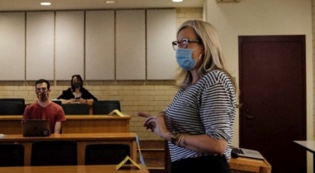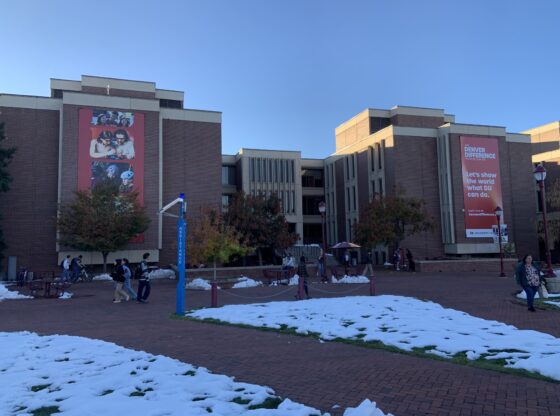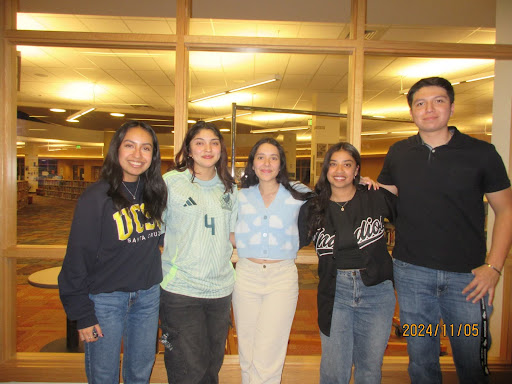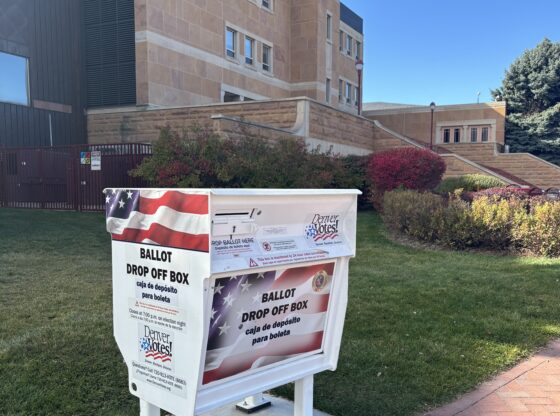DU released their Fall 2020 action plan on July 15. The plan goes into great detail about all of the different procedures, rules and restructuring that will occur in order to prepare DU for a COVID-19 learning experience. The entire plan is quite lengthy, and the DU community should read it in its entirety to fully understand what to expect in the fall. However, here is an abridged version that will help you get up to speed.
DU has partnered with National Jewish Health (NJH) to “apply the best COVID-19 testing type, population and frequency for the safe return of DU’s students, faculty and staff to campus.” This collaboration is intended to help create a safe environment for students by following the recommended medical procedures.
The university will be incorporating manual and digital tracing to track the virus on campus. Manual tracing consists of interviews that ascertain who came in contact with an infected individual. Digital tracing will employ the use of a “digital tracking vendor” as well as Wi-Fi and ID tracking. Students and staff will have to download an app on their phones to participate in the program. A decision regarding the digital tracking vendor will be made by July 31.
Students will participate in symptom monitoring through text messages. Two daily messages will ask students if they are experiencing any COVID-19 symptoms or have left Colorado. Students are required to answer these prompts, and “persistent non-compliance” will result in a “termination of campus access.” DU’s COVID-19 Response Team (CRT) will assess these responses and request community members to quarantine as needed.
Social distancing and mask guidelines will be upheld on campus. A six-foot minimum is required to separate individuals. A mask must be worn at all times except if you are eating/drinking, in a private office space or have a medical condition and proper DU documentation that clears you from wearing a mask.
Restroom occupancy will be limited, the plan stating that “in many cases, only one person will be permitted at a time.” In-person meetings must be short in length, under 50 percent room capacity and uphold social distancing guidelines.
A Canvas course will be mandatory for all students prior to coming to campus. The course will detail proper public health behaviors, campus resources and group responsibilities.
Classes will be held in four distinct fashions. Online classes will be entirely internet-based without any in-person aspects. Hybrid classes will be partially in-person and partially online. For example, Advanced Editing taught by Professor Joe Brown will have its Monday section in-person and its Wednesday section online. Similarly, hyflex classes will be both in-person and online. But the student will either be assigned or able to choose what modality they attend class with. In-person instruction is reserved for classes of smaller sizes, and they will be held in a lecture hall with specific guidelines.

In-person classroom rules are as follows:
- Wipe down your area with a disinfectant wipe (provided) before being
- seated.
- Arrive on time and do not linger in the classroom or building between
- classes.
- When arriving at your class, you should choose an open seat closest to the
- front in order to minimize walking past people in close proximity.
- Remain seated for the duration of the class.
- Face coverings are required throughout the duration of the class.
- No eating or drinking during class.
- Faculty are encouraged to remain at the front of the class and minimize
- use of equipment elsewhere in the room.
- When in the building hallways and common areas, keep moving.
- While on campus during the day between classes, find a location with
- available room capacity, return to the residence hall, or find a space
- outside.

All office hours will be online, and all work will be submitted digitally. If needed at any point in the quarter, classes will be able to switch to a completely online format.
56 percent of first-year dorms will be single occupancy. Communal restrooms will be disinfected three times a day. Pre-orientation events will be held online, while orientation week will be a mix of online and in-person opportunities. Floor meetings will be held virtually.
The frequency of cleaning in all spaces has been increased by custodial staff, and new equipment and ventilation systems have been bought to support this effort.
Hilltop apartments will be used as an isolation/quarantine space. This space is reserved for students with a valid HRE contract. Students without a contract will need to find their own secluded accommodations.
Denver athletics has no planned return date, but DU is working in cooperation with a myriad of organizations to eventually develop a safe return for sports. However, intramural and club sports are not planned to return for the fall.
Recreational facilities will face new guidelines in order to protect the community. To use these spaces, you must agree to a COVID-19 symptom screening, make a dedicated use reservation, have an assumption of risk and accept education on the best health and safety practices. These rules apply to the El Pomar Natatorium, Joy Burns Arena, Field Complex, Pat Bowlen Training Center, Coors Fitness Center and Gymnastics arena. All of these areas are currently open, barring the last two, which have a planned August launch.
Events will be limited to those deemed essential. As of now Newman Center performances and Lamont concerts are canceled. Said gatherings must follow all previous procedures and will operate under additional administrative oversight. Visitors will need to register via a DU portal to attend, and they must follow all campus guidelines.
The plan acknowledged that students of color are being adversely impacted by COVID-19. It cited a list of resources created by the Office of Diversity, Equity and Inclusion specific to the crisis at hand. A concrete action plan for facilitating inclusive excellence on campus will be released by the Office of the Chancellor by Aug. 15.
The full plan for fall quarter is linked here. Please direct any questions or concerns about the plan to the Office of the Chancellor at chancellor@du.edu. The university reserves the ability to adjust this plan in response to changing conditions, health orders or government guidelines.
Thursday, July 16, a virtual town hall was held to communicate this plan to faculty and staff. On Tuesday, July 21 at 10:30 a.m., one will be coordinated for students and families as well. The Zoom link for this town hall will be found in a forthcoming email from the chancellor.











